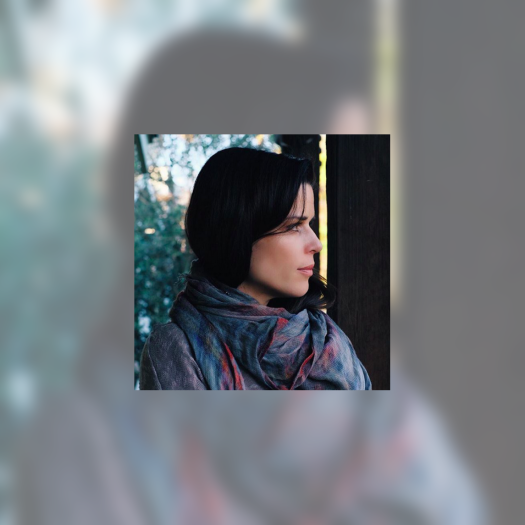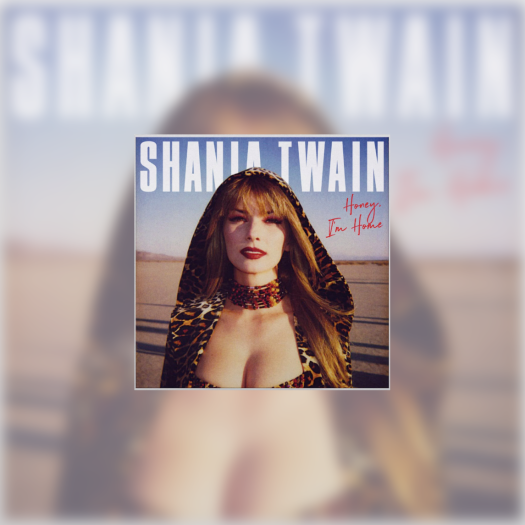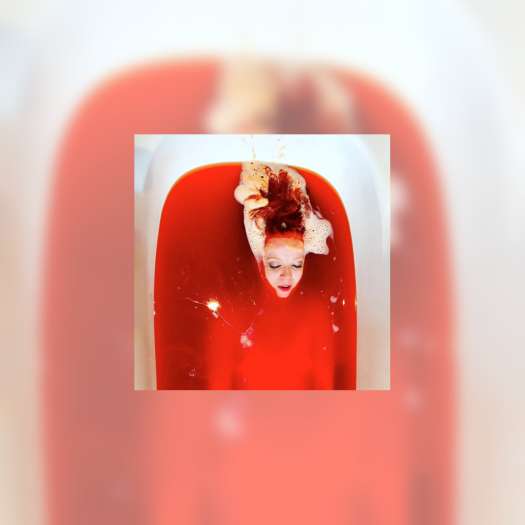This record reveals itself like an audio art film through connected storylines and hazy, bass-heavy beats. There is a narrative to the songs ― about social turmoil arising after an unclassified radioactive accident. Some aim to escape the altered landscape through a belief in Babylonian salvation while others immerse themselves in life and do their best to hold onto humanity in a reality of human distortion and sickness. Musically, Black Sun tends to stay in a dubstep tempo, with grounded warmth in the bass, while also veering into beat-less, synth-focused zones, as on "Hole in the Sky." Elements of dub and reggae root themselves amongst the varied two-step beats next to Spaceape's rugged, intense vocals and the feminine element brought by guest vocalist Cha Cha. Kode9 regularly performs at Brainfeeder events and elements of the pulsing, encompassing sound of artists like Samiyam and Flying Lotus are evident. Actually, final track "Kryon" was produced with Flying Lotus and emanates glowing energy like a light at the end of a tunnel. Black Sun radiates a dub-heavy, warm-bass fusion of electronic beats and synths, along with a story possessing emotion and imagery.
Close to five years have passed since you and Kode9 released Memories of the Future. Did your approach to working together change when producing Black Sun?
Well, the album had been burning on and off for about two of those five years, so it wasn't as though we had to reintroduce ourselves. This album grew largely out of the live sets we'd been playing for about three years, so a few of the tracks have been brewing in some shape or form for a while now. Our sets are quite fast moving and freestyle, in places, and we wanted to capture some of that energy in the studio. Kode also fed a lot more off of what I was bringing to the studio lyrically than on our first album, where I would do vocal tracks that Kode had, for the most part, already written. However, on this album, I would come with ideas, sketches of lyrics, and we'd either build a track there and then or I'd record and leave him a main vocal with backing and hype tracks to arrange around a track he'd later build. We spent a lot more time together in the studio than on Memories, writing, recording, listening back or conceptualising.
What inspired the unclassified, post-radioactive accident landscape on Black Sun? Did other media or movies have an influence?
No, what inspired Black Sun were primarily the experiences Kode9 and myself had been through during the previous year or so. As I've mentioned in previous interviews, I was very ill throughout the recording of the album and some of that experience is distilled in the writing. This, combined with Kode's life at the time, was how the story took form and eventually developed into something altogether different from its origin. For me, it's always important to subtract from what I know as a way of escape, as a way to release new energies from which new ideas will come. I feel this is a mechanism for moving forward rather than remaining stagnant. We started writing a work of fiction about some unclassified radioactive event that fucks up the atmosphere, hence your "black suns," "green suns" ― suns filtered through this toxic atmosphere. And there are a series of social implications of this event with lots of social upheaval, revolutions. Sexual relationships have been banned, so all intimate relationships take place illicitly. There are a lot of themes of bodily mutation and health-type themes. All of the population is undergoing these unpredictable bodily mutations because of the radiation. Some groups of the population are trying to resist these mutations, trying to hang onto the humanity, as opposed to becoming something other, and turn into a monotheistic religion for redemption and salvation. Whereas other groups, the mutations are taking them in another direction and they're not going to resist it, they're going with it. And how the story ends up is: certain groups take this synthetic compound to keep them alive, but they don't try and resist the mutations that are taking place and are disoriented and as we put it, "they remain to bathe under the black sun." They stay in this fucked up environment instead of trying to escape to some promised land.
Black Sun has a clear storyline in the songs amid deep dub and warmth in the bass. Can you share the emotions and visual imagery in this world with references to particular songs?
I began writing about things that either touched me or hurt me in some way and as I was writing and the stories moved further and further away from me it became clear they inhabited the same world: a place that breathed a different atmosphere, had different rules, politics, desires, religions, even a different light to our own. Many things, although recognisable, are shaped in a different way, where elements of what we know still exist, but are now either warped or fragmented. That sense of a distorted reality comes directly from our recent experiences. Many of the tracks I wrote ― like "Neon Red Sign," about a man struggling with a spiritual dilemma, hounded by new age prophets trying to sell him their beliefs, or "Black Smoke," which is basically exorcising the ghosts of Memories of the Future, or "Promises," a track about an illicit, destructive love, in a time where true feelings, emotions and affection are prohibited, turning true lovers into fugitives ― are all realities that might seem impossible, but exist and make sense under the Black Sun world we created for them.
In line with the other elements, Cha Cha also brings warmth to the record with her vocal work. When did you meet her and how did she become part of the Black Sun project?
Cha Cha is a vocalist from Shanghai and friend of Kode 9's. We first worked together on the track "Time Patrol," which appeared on the Hyperdub 5 comp. When we started recording, we both thought we wanted to bring in a female vocalist. Once we got all the tracks down, we earmarked a few we thought would benefit from a female voice. What's interesting is that we didn't know what she was going to do. "Love is a Drug" sounds much more seductive and dangerous with her vocals. On "The Cure," we're like two funky renegades; her vocal weaves in and out of mine, adding a dynamic quality. I think her vocals give the album freshness and maturity; it's also something we've never done before.
You've mentioned that your work is informed by Afro-futurism. Can you discuss concepts of revolution arising in the Black Sun story?
For me, the idea of Afro-Futurism is not fixed; you can take its core ideas and take them somewhere else. In the case of Black Sun, we've taken it to a place that is yet to exist, however, we are living the beginnings of it now. The idea of revolution is that of, for example, overthrowing some doctrine or another. But in our story things have collapsed in on themselves ― things are upside down, familiar in appearance, but very different in actuality. Therefore, revolutions fail because ideas keep revolving. The real revolutionaries in Black Sun are those that stay in the fucked up environment instead of trying to escape to some promised land. If you listen carefully, there is a constant rumble throughout all the tracks.
(Hyperdub)Close to five years have passed since you and Kode9 released Memories of the Future. Did your approach to working together change when producing Black Sun?
Well, the album had been burning on and off for about two of those five years, so it wasn't as though we had to reintroduce ourselves. This album grew largely out of the live sets we'd been playing for about three years, so a few of the tracks have been brewing in some shape or form for a while now. Our sets are quite fast moving and freestyle, in places, and we wanted to capture some of that energy in the studio. Kode also fed a lot more off of what I was bringing to the studio lyrically than on our first album, where I would do vocal tracks that Kode had, for the most part, already written. However, on this album, I would come with ideas, sketches of lyrics, and we'd either build a track there and then or I'd record and leave him a main vocal with backing and hype tracks to arrange around a track he'd later build. We spent a lot more time together in the studio than on Memories, writing, recording, listening back or conceptualising.
What inspired the unclassified, post-radioactive accident landscape on Black Sun? Did other media or movies have an influence?
No, what inspired Black Sun were primarily the experiences Kode9 and myself had been through during the previous year or so. As I've mentioned in previous interviews, I was very ill throughout the recording of the album and some of that experience is distilled in the writing. This, combined with Kode's life at the time, was how the story took form and eventually developed into something altogether different from its origin. For me, it's always important to subtract from what I know as a way of escape, as a way to release new energies from which new ideas will come. I feel this is a mechanism for moving forward rather than remaining stagnant. We started writing a work of fiction about some unclassified radioactive event that fucks up the atmosphere, hence your "black suns," "green suns" ― suns filtered through this toxic atmosphere. And there are a series of social implications of this event with lots of social upheaval, revolutions. Sexual relationships have been banned, so all intimate relationships take place illicitly. There are a lot of themes of bodily mutation and health-type themes. All of the population is undergoing these unpredictable bodily mutations because of the radiation. Some groups of the population are trying to resist these mutations, trying to hang onto the humanity, as opposed to becoming something other, and turn into a monotheistic religion for redemption and salvation. Whereas other groups, the mutations are taking them in another direction and they're not going to resist it, they're going with it. And how the story ends up is: certain groups take this synthetic compound to keep them alive, but they don't try and resist the mutations that are taking place and are disoriented and as we put it, "they remain to bathe under the black sun." They stay in this fucked up environment instead of trying to escape to some promised land.
Black Sun has a clear storyline in the songs amid deep dub and warmth in the bass. Can you share the emotions and visual imagery in this world with references to particular songs?
I began writing about things that either touched me or hurt me in some way and as I was writing and the stories moved further and further away from me it became clear they inhabited the same world: a place that breathed a different atmosphere, had different rules, politics, desires, religions, even a different light to our own. Many things, although recognisable, are shaped in a different way, where elements of what we know still exist, but are now either warped or fragmented. That sense of a distorted reality comes directly from our recent experiences. Many of the tracks I wrote ― like "Neon Red Sign," about a man struggling with a spiritual dilemma, hounded by new age prophets trying to sell him their beliefs, or "Black Smoke," which is basically exorcising the ghosts of Memories of the Future, or "Promises," a track about an illicit, destructive love, in a time where true feelings, emotions and affection are prohibited, turning true lovers into fugitives ― are all realities that might seem impossible, but exist and make sense under the Black Sun world we created for them.
In line with the other elements, Cha Cha also brings warmth to the record with her vocal work. When did you meet her and how did she become part of the Black Sun project?
Cha Cha is a vocalist from Shanghai and friend of Kode 9's. We first worked together on the track "Time Patrol," which appeared on the Hyperdub 5 comp. When we started recording, we both thought we wanted to bring in a female vocalist. Once we got all the tracks down, we earmarked a few we thought would benefit from a female voice. What's interesting is that we didn't know what she was going to do. "Love is a Drug" sounds much more seductive and dangerous with her vocals. On "The Cure," we're like two funky renegades; her vocal weaves in and out of mine, adding a dynamic quality. I think her vocals give the album freshness and maturity; it's also something we've never done before.
You've mentioned that your work is informed by Afro-futurism. Can you discuss concepts of revolution arising in the Black Sun story?
For me, the idea of Afro-Futurism is not fixed; you can take its core ideas and take them somewhere else. In the case of Black Sun, we've taken it to a place that is yet to exist, however, we are living the beginnings of it now. The idea of revolution is that of, for example, overthrowing some doctrine or another. But in our story things have collapsed in on themselves ― things are upside down, familiar in appearance, but very different in actuality. Therefore, revolutions fail because ideas keep revolving. The real revolutionaries in Black Sun are those that stay in the fucked up environment instead of trying to escape to some promised land. If you listen carefully, there is a constant rumble throughout all the tracks.




